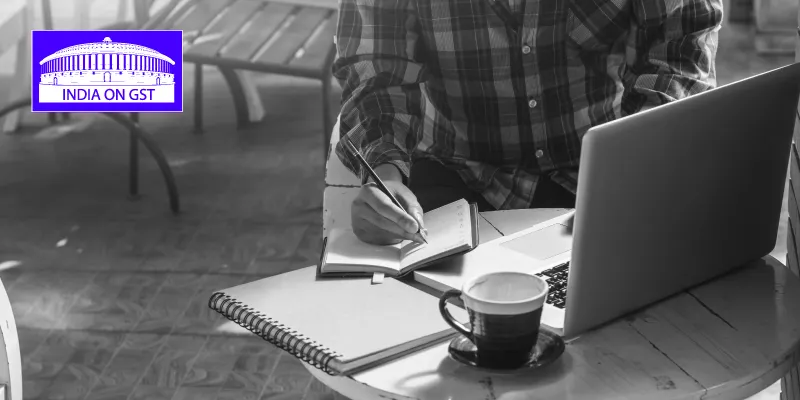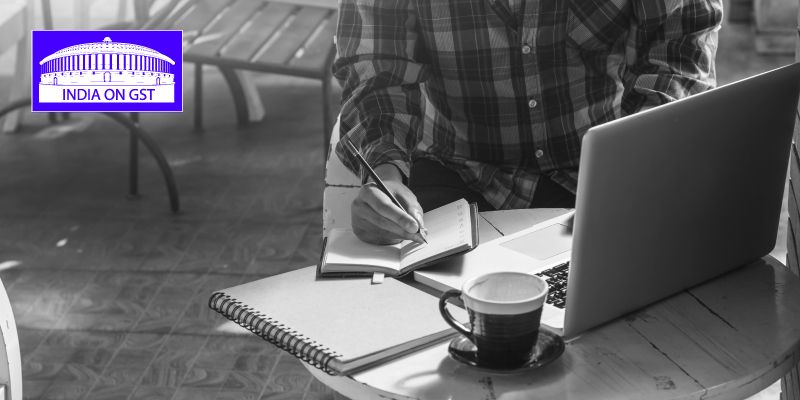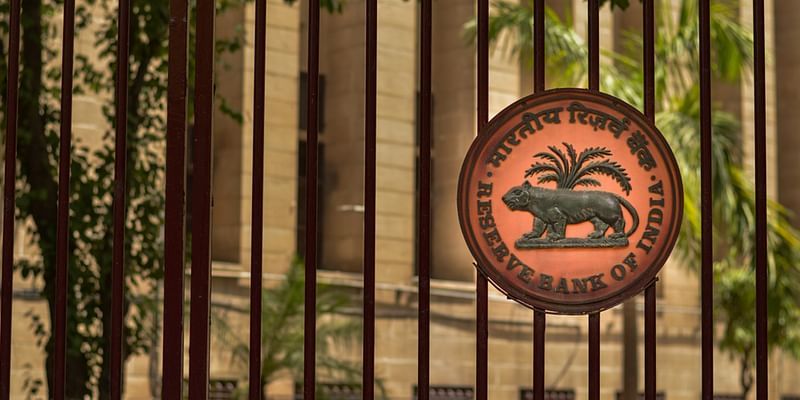GST hack: for services startups and freelancers
Irrespective of the qualifying limit, it may be beneficial for you to register under the Goods and Services Tax (GST) if you are a service provider or a freelancer. Here's how.
GST will be charged at four different slab rates of five percent, 12 percent, 18 percent and 28 percent on services. At the outset, it may appear that the burden of service tax would increase. However, the GST regime allows service providers to claim credit of tax paid on goods (and services) used as input in their profession. This means the cost of services may come down. Under service tax laws, tax paid on only input services was only available for paying service tax dues.

While the service tax laws required mandatory registration where turnover exceeds Rs 9 lakh, registration under GST is required where turnover exceeds Rs 20 lakh (Rs 10 lakh for north-eastern states). However, those who supply services online via e-commerce or a website will have to get themselves registered under GST, irrespective of the qualifying limit.
GST for freelancers
GST will help small scale freelancers as the turnover limit for registration has been increased to Rs 20 lakh (except for north-eastern states). Freelancers, earning an average of Rs 15 lakh, were liable to register and pay service tax of Rs 2.25 lakh (@ 15 percent) including the Swachh Bharat Cess (SBC) and Krishi Kalyan Cess (KKC) under the current laws will not have to register under GST if they are not providing their services online.
Service providers, who provide interstate services or have a turnover above Rs 20 lakh, would need to register for GST in each state where they provide their services, separately. Service providers can reduce the tax paid by them on inputs from their outgoing service tax liability. However, no credit was allowed for Swachh Bharat Cess paid on input services. Now this portion of the tax will also be eligible for credit since Swachh Bharat Cess will be subsumed in GST. So, one can claim credit of tax paid on all inputs. Service providers or freelancers will be able to input tax paid on goods used for their businesses. For example, if a freelancer purchases a laptop, he can claim the GST paid on it as input credit while paying his outgoing GST liability. In the old regime, VAT paid on input goods could not be used to set off outgoing service tax dues.
Below is a brief understanding of what will change in the GST regime (assuming an 18% levy on services).
COMPARISON TABLE OF TAX ON SERVICES
Under GST, tax paid on the goods purchased for delivering a service can be taken as input tax credit. There will be an additional tax of Rs 1,50,000 under GST (C) but there will also be an additional ITC benefit of Rs 17,500 (D) under GST. According to the table above, there will be a net additional tax liability of Rs 1,32,500 under GST for the services provided.
Benefit of input tax will be for those service startups who use services of others for delivering their service.
For example:
X provides event management services for music shows, standup comedies and weddings. N hired services of X for his wedding. The consideration for the service was Rs 20 lakh.
X had paid Rs 5 lakh for catering and Rs 4 lakh for renting the marriage hall. X paid Rs 3 lakh to the florist for the decoration and Rs 5 lakh to the musician and the photographer.
ITC available under current laws Rs 2,55,000 (A)
(15% * 5 lakh for catering + 15% * 5 lakh for music + 15% * 4 lakh for rent + 15% * 3 lakh for florist)
ITC available under GST Rs 3,06,000 (B)
(18% * 5 lakh for catering +18% * 5 lakh for music + 18% * 4 lakh for rent + 18% * 3 lakh)
Additional tax liability under GST Rs 60,000 (3,60,000-3,00,000)
{Tax liability under GST - Tax liability under current law} = (18% * 20 lakh -15% * 20 lakh)
Net increase in tax liability = Rs 9,000 {60,000 - (B-A)}
Since those engaged in the service sector are usually interdependent, the net effect on the tax liability is expected to be marginal under GST despite the increase in tax rate for certain services.
No input tax credit would be provided for input services used if the service is not registered under GST. Since the additional tax liability under GST can be reduced with the additional benefit via tax credit, a decrease is expected in the number of unregistered service providers.
GST will help the service providers in getting the input tax credit for the goods used in delivery of the services. This was not available before as tax on goods and services were levied under two different acts: CST and VAT. So, if you are a service provider or a freelancer, it may be beneficial for you to register under GST as you will now be allowed to claim tax credit on both goods and services.
GST will dent a small hole in the service industry but it will also make the service sector better regulated and organised. Besides, small scale freelancers will benefit under GST due to an increase in the qualifying limit.
(Archit Gupta is the Founder and CEO of ClearTax)
In the run-up to one of the biggest tax reforms in the country, the market is abuzz with new rules and guidelines about the Goods and Services Tax (GST). How will GST really impact your business? How will your financial reporting change? Find out the answers to all this and more, directly from industry and tax experts who will share their expertise on YourStory’s new series ‘IndiaonGST’.
(Disclaimer: The views and opinions expressed in this article are those of the author and do not necessarily reflect the views of YourStory.)











